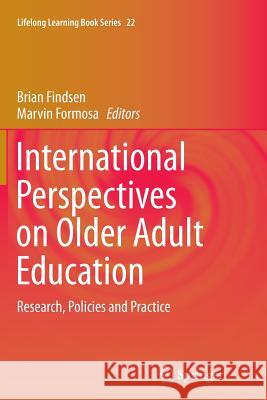International Perspectives on Older Adult Education: Research, Policies and Practice » książka
topmenu
International Perspectives on Older Adult Education: Research, Policies and Practice
ISBN-13: 9783319797038 / Angielski / Miękka / 2018 / 519 str.
Kategorie:
Kategorie BISAC:
Wydawca:
Springer
Seria wydawnicza:
Język:
Angielski
ISBN-13:
9783319797038
Rok wydania:
2018
Wydanie:
Softcover Repri
Ilość stron:
519
Waga:
0.74 kg
Wymiary:
23.39 x 15.6 x 2.77
Oprawa:
Miękka
Wolumenów:
01
Dodatkowe informacje:
Wydanie ilustrowane











